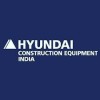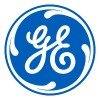
i
Seinumero
Nirman
Filter interviews by
Seinumero Nirman Quality Engineer Interview Questions and Answers
Seinumero Nirman Quality Engineer Interview Experiences
2 interviews found
(5 Questions)
- Q1. Types of pumps and explain the pump
- Ans.
Types of pumps include centrifugal, reciprocating, and rotary pumps.
Centrifugal pumps use a rotating impeller to increase the pressure of a fluid.
Reciprocating pumps use a piston or diaphragm to move fluid through a system.
Rotary pumps use rotating mechanisms to displace fluid, such as gear, vane, and screw pumps.
- Q2. Types of flow and explain the the flow
- Ans.
Types of flow include laminar flow, turbulent flow, and transitional flow.
Laminar flow: smooth and orderly flow with parallel layers of fluid moving in the same direction.
Turbulent flow: chaotic and irregular flow with mixing of fluid particles in all directions.
Transitional flow: a mix of laminar and turbulent flow, often occurring during a transition phase.
Examples: Laminar flow in a straight pipe, turbulent flow in ...
- Q3. Tell me something about the CNC
- Ans.
CNC stands for Computer Numerical Control, a technology used in manufacturing processes to control machining tools and 3D printers.
CNC machines are programmed using a code called G-code, which controls the movement and operation of the machine.
CNC machines can be used for cutting, milling, drilling, and other manufacturing processes.
CNC machines offer high precision and repeatability in production.
Examples of CNC machi...
- Q4. Difference between throttle governing and nozzle governing
- Ans.
Throttle governing controls flow rate by adjusting the size of the opening, while nozzle governing controls flow rate by changing the pressure at the nozzle outlet.
Throttle governing involves adjusting the size of the opening through which the fluid flows, controlling the flow rate.
Nozzle governing involves changing the pressure at the nozzle outlet to control the flow rate.
Throttle governing is commonly used in carbur...
- Q5. Difference between CNCand VMC
- Ans.
CNC stands for Computer Numerical Control and is a general term for a system that controls the functions of a machine tool. VMC stands for Vertical Machining Center and is a specific type of CNC machine used for milling operations.
CNC is a general term for any machine tool controlled by a computer, while VMC specifically refers to a vertical milling machine.
VMC machines are typically used for milling operations, while ...
- Q1. Casual Quality related Quality like 7 qc tools and spc and msa
- Q2. APQP,PPAP, Continue Improvement
Top trending discussions






Interview questions from similar companies

I applied via Recruitment Consultant and was interviewed before Oct 2019. There were 5 interview rounds.
Interview Questionnaire
4 Questions
- Q1. What is meaning of civil engineering.?
- Q2. How you given organization profits in your allocated job role.?
- Ans.
I have driven profits through process improvements, cost reductions, and innovative solutions in my engineering roles.
Implemented a new automated testing framework that reduced testing time by 30%, allowing faster product releases and increased revenue.
Led a cross-functional team to redesign a key product feature, resulting in a 15% increase in customer satisfaction and a 10% boost in sales.
Optimized supply chain proce...
- Q3. What are the main quality focus on civil engineering field?
- Ans.
The main quality focus in civil engineering is safety, durability, and sustainability.
Ensuring the safety of structures and infrastructure
Designing for durability and longevity
Incorporating sustainable practices and materials
Adhering to building codes and regulations
Conducting thorough inspections and testing
Using advanced technology and software for design and analysis
Collaborating with other professionals to ensure q...
- Q4. How you doing project efficient?
Interview Preparation Tips

Senior Engineer Interview Questions & Answers
V.S.T Tillers Tractorsposted on 11 May 2022
I applied via Naukri.com and was interviewed before May 2021. There were 4 interview rounds.

Share the details from work related questions
(1 Question)
- Q1. What ever the new ideas
- Ans. Working time any new development
(4 Questions)
- Q1. Which type of field in previous working area
- Q2. How many years working experience and working time any improvement
- Q3. Work related question
- Q4. Why choose this type job
- Ans.
I chose this job to leverage my passion for technology and problem-solving in creating impactful solutions.
I have always been fascinated by technology and its potential to solve real-world problems.
In my previous role, I developed a software solution that improved efficiency by 30%, showcasing my ability to make a tangible impact.
I enjoy collaborating with cross-functional teams, as it allows me to learn from others an...
Interview Preparation Tips

Senior Engineer Interview Questions & Answers
Hyundai Construction Equipmentposted on 9 Sep 2021
I applied via Referral and was interviewed in Mar 2021. There were 3 interview rounds.
Interview Questionnaire
2 Questions
- Q1. About Process related to Assembly line
- Q2. Details of assembly line sequence
- Ans.
The assembly line sequence involves a step-by-step process of assembling parts to create a final product.
The process starts with the arrival of raw materials
Parts are then assembled in a specific order
Quality checks are performed at various stages
The final product is packaged and shipped
Efficiency and safety are key considerations throughout the process
Interview Preparation Tips

Senior Engineer Interview Questions & Answers
V.S.T Tillers Tractorsposted on 13 Sep 2023
I applied via Referral and was interviewed before Sep 2022. There were 3 interview rounds.

Group discussion with Plant Head and Manager (L1)
(1 Question)
- Q1. After Group Discussion direct with HR (L2)
Interview Preparation Tips

Senior Engineer Interview Questions & Answers
V.S.T Tillers Tractorsposted on 15 May 2022
I applied via Recruitment Consulltant and was interviewed in Nov 2021. There were 3 interview rounds.

(1 Question)
- Q1. Product knowledge and experience
(1 Question)
- Q1. Personal details and experience levels
Interview Preparation Tips

Senior Engineer Interview Questions & Answers
HYT Engineeringposted on 18 Jul 2024
I applied via Recruitment Consulltant and was interviewed before Jul 2023. There were 2 interview rounds.
(2 Questions)
- Q1. Technical knowledge
- Q2. Past Experience
- Ans.
I have over 10 years of experience in software engineering, focusing on full-stack development and team leadership.
Led a team of 5 engineers in developing a scalable e-commerce platform, resulting in a 30% increase in sales.
Implemented CI/CD pipelines that reduced deployment time by 50%, enhancing team productivity.
Worked on a healthcare application that improved patient data management, ensuring compliance with HIPAA ...
Technical Knowledge about field
Interview Preparation Tips

Senior Engineer Interview Questions & Answers
V.S.T Tillers Tractorsposted on 29 May 2025
- Q1. Basic mechanical engineering questions
- Q2. What are the basic and detailed functions of a tractor?
- Ans.
Tractors are versatile machines used in agriculture for various tasks, enhancing productivity and efficiency in farming operations.
Basic function: Towing implements like plows and harrows for soil preparation.
Detailed function: Powering attachments such as seeders and sprayers for planting and crop management.
Basic function: Transporting materials like fertilizers and harvested crops.
Detailed function: Operating hydrau...

Quality Manager Interview Questions & Answers
Kobelco Construction Equipment Indiaposted on 11 Aug 2022
I applied via Approached by Company and was interviewed before Aug 2021. There was 1 interview round.
(2 Questions)
- Q1. Major NDT Updated technology in fab structures
- Ans.
Digital Radiography and Ultrasonic Testing are major NDT updated technologies in fab structures.
Digital Radiography uses digital sensors to capture images of internal structures of materials and components.
Ultrasonic Testing uses high-frequency sound waves to detect internal flaws and defects in materials.
Both technologies provide faster and more accurate results compared to traditional NDT methods.
They also offer the ...
- Q2. Stress and Strain point analysis
Interview Preparation Tips
Seinumero Nirman Interview FAQs
Tell us how to improve this page.
Seinumero Nirman Interviews By Designations
- Seinumero Nirman Quality Engineer Interview Questions
- Seinumero Nirman CNC Machine Operator Interview Questions
- Seinumero Nirman Production Manager Interview Questions
- Seinumero Nirman Quality Inspector Interview Questions
- Seinumero Nirman Operator Interview Questions
- Seinumero Nirman Design Engineer Interview Questions
- Seinumero Nirman QA Engineer Interview Questions
- Seinumero Nirman Machine Operator Interview Questions
- Show more
Interview Questions for Popular Designations
Overall Interview Experience Rating
based on 2 interview experiences
Interview Questions from Similar Companies
Seinumero Nirman Quality Engineer Reviews and Ratings
based on 4 reviews
Rating in categories
|
Quality Engineer
35
salaries
| ₹2 L/yr - ₹3.5 L/yr |
|
Production Supervisor
23
salaries
| ₹2.2 L/yr - ₹4.4 L/yr |
|
QA Engineer
12
salaries
| ₹2.2 L/yr - ₹4.5 L/yr |
|
Quality Inspector
11
salaries
| ₹2.1 L/yr - ₹3.7 L/yr |
|
Maintenance Engineer
11
salaries
| ₹2.2 L/yr - ₹3.8 L/yr |

Ge India Industrial

V.S.T Tillers Tractors

Gilbarco Veeder Root

Kirloskar Toyota Textile Machinery
- Home >
- Interviews >
- Seinumero Nirman Interview Questions












